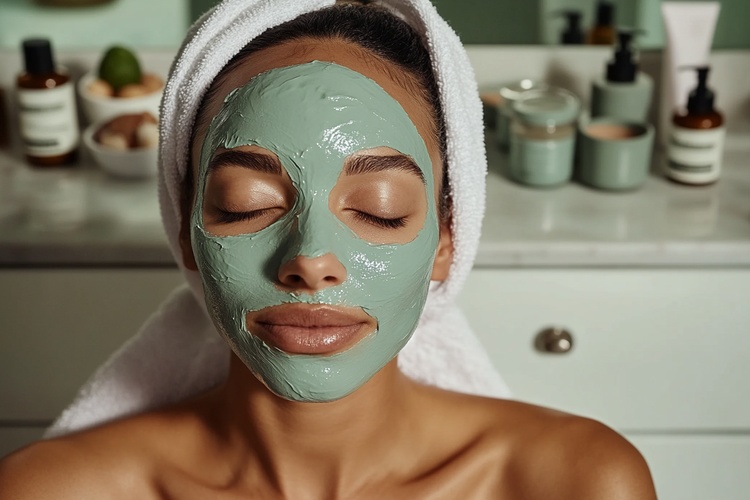Bamboo Fiber Skincare: Nature's Sustainable Beauty Secret
In the ever-evolving world of beauty and skincare, a new player has emerged from the lush forests of Asia: bamboo fiber. This remarkable plant, known for its rapid growth and versatility, is now making waves in the beauty industry as a sustainable and effective skincare ingredient. Bamboo fiber's journey from construction material to beauty staple is a testament to the industry's shift towards eco-friendly solutions. As consumers become increasingly conscious of their environmental impact, bamboo fiber offers a promising alternative to traditional skincare ingredients. Its unique properties, including natural antibacterial qualities and moisture-wicking abilities, make it an ideal candidate for a wide range of beauty products. From facial cleansers to body lotions, bamboo fiber is revolutionizing the way we approach skincare.

The turning point came in the mid-2010s when advancements in fiber technology allowed for the creation of ultra-fine bamboo fibers suitable for skincare applications. This innovation opened up new possibilities for product development, leading to the creation of bamboo-infused cleansers, exfoliants, and moisturizers. The beauty industry’s increasing focus on sustainability further propelled bamboo fiber into the spotlight, as it offered a renewable and biodegradable option for eco-conscious consumers.
The Science Behind Bamboo Fiber’s Skincare Benefits
Bamboo fiber’s effectiveness in skincare is rooted in its unique molecular structure and chemical composition. At the microscopic level, bamboo fibers are composed of long cellulose chains with numerous hydroxyl groups. These groups give bamboo its exceptional moisture-absorbing properties, allowing it to effectively draw out impurities and excess oil from the skin without causing irritation.
Furthermore, bamboo contains natural antimicrobial agents known as “bamboo kun.” These bioactive compounds have been shown to inhibit the growth of bacteria and fungi, making bamboo fiber an excellent choice for acne-prone skin. Studies have demonstrated that skincare products containing bamboo fiber can significantly reduce the presence of acne-causing bacteria on the skin’s surface.
Another key benefit of bamboo fiber is its high antioxidant content. Bamboo leaves and shoots are rich in polyphenols and flavonoids, powerful antioxidants that protect the skin from free radical damage and environmental stressors. When incorporated into skincare formulations, these compounds help to neutralize oxidative stress and promote a more youthful, radiant complexion.
Innovative Bamboo Fiber Skincare Products
The versatility of bamboo fiber has led to the development of a wide range of innovative skincare products. One of the most popular applications is in facial cleansing cloths. These ultra-soft cloths are infused with bamboo fibers that gently exfoliate the skin while effectively removing makeup and impurities. The natural antibacterial properties of bamboo help to keep the cloths fresh and hygienic between uses.
Bamboo fiber has also found its way into face masks and sheet masks. These products leverage bamboo’s moisture-retention capabilities to deliver intense hydration to the skin. The fine fibers create a barrier that prevents evaporation, allowing active ingredients to penetrate more deeply into the skin for maximum efficacy.
In the realm of body care, bamboo fiber is being used to create sustainable and biodegradable exfoliating scrubs. Unlike plastic microbeads, which have been banned in many countries due to environmental concerns, bamboo fiber particles provide gentle yet effective exfoliation without harming marine ecosystems.
Sustainability and Market Impact
The rise of bamboo fiber in skincare is not just a trend; it’s a reflection of the beauty industry’s broader shift towards sustainability. Bamboo is one of the fastest-growing plants on Earth, capable of reaching maturity in just three to five years. This rapid growth rate makes it a highly renewable resource, especially when compared to traditional skincare ingredients that may take decades to produce.
Moreover, bamboo cultivation requires minimal water and no pesticides, further reducing its environmental footprint. As consumers become increasingly aware of the ecological impact of their purchasing decisions, bamboo fiber products are gaining significant market share. Industry analysts predict that the global bamboo products market, including skincare, will reach $98.3 billion by 2025, with a compound annual growth rate of 5.2%.
The adoption of bamboo fiber in skincare has also spurred innovation in packaging. Many brands are now using bamboo-derived materials for product containers and packaging, creating a fully sustainable skincare experience from formulation to disposal.
Challenges and Future Prospects
While bamboo fiber shows great promise in the skincare industry, it is not without challenges. One of the primary concerns is the processing methods used to transform bamboo into usable fiber. Some techniques involve harsh chemicals that can negate the plant’s eco-friendly attributes. As a result, there is a growing demand for more sustainable processing methods, such as mechanical separation and enzyme-based treatments.
Another challenge lies in educating consumers about the benefits of bamboo fiber skincare. Many people are unfamiliar with the ingredient and may be hesitant to try new products. Beauty brands are addressing this through targeted marketing campaigns and partnerships with dermatologists to promote the scientific backing of bamboo fiber’s skincare benefits.
Looking to the future, researchers are exploring ways to enhance the properties of bamboo fiber through nanotechnology. By creating nanoparticles of bamboo fiber, scientists hope to improve its penetration into the skin and boost its effectiveness in delivering active ingredients.
As the beauty industry continues to evolve, bamboo fiber stands at the forefront of sustainable skincare innovation. Its unique combination of skin-friendly properties and environmental benefits make it a powerful ally in the quest for both personal and planetary well-being. As more brands embrace this versatile ingredient, consumers can look forward to a new era of eco-conscious beauty that doesn’t compromise on efficacy or luxury.






